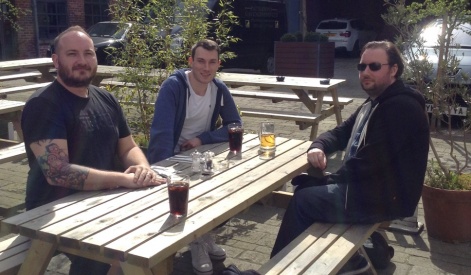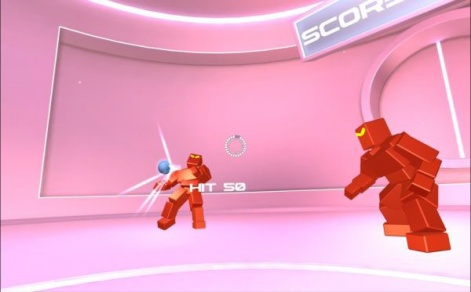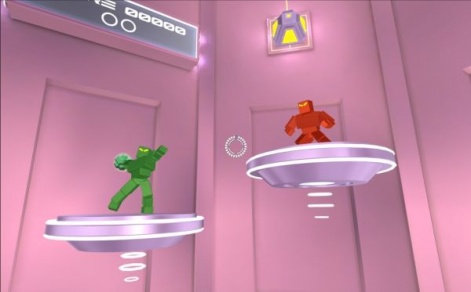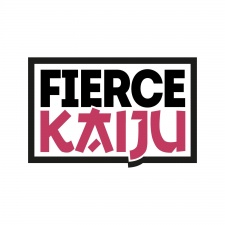With game development being such a specialised field, there aren't that many options to you should your studio suddenly get shut down.
You can scrub up your CV, put on a suit, and start heading out to other studios hoping to get a new job.
Or you can throw caution to the wind and decide to set up shop on your own.
For Paul Colls and a handful of others left in the lurch after Activision shut down its Leeds-based mobile studio, The Blast Furnace, it was the latter option that made the most sense.
Keep your friends close
"We kind of set up to keep as many of us together as we possibly could", says Colls. "All of the other people that we worked with, frankly, were as equally as talented as us."
So after splintering off to work on different projects at their own pace, a handful of the former Blast Furnace team got together under the banner of Fierce Kaiju to see what they could do.

After an initial meeting with 9 people, the team eventually wound down to just 4, as the others decided to go off and find work elsewhere.
"There wasn't any money coming in at that point," says Dan Roberts.
"In the end, it was the guys who really wanted to make a go of Fierce Kaiju."
The right stuff
Those that remained had plenty of experience between them. Both Colls and Roberts joined Mobius Entertainment in 2000 as artists, working together on several projects.
When Mobius became Rockstar Leeds in 2004, Colls left the art department to become a QA manager, before working his way up to Lead Designer, while Roberts became Head Artist.
The two then left to help start up Activision's aforementioned mobile studio, where Roberts was offered, and turned down, the position of Art Director.
"We were moving into mobile," he explains, "and I was really excited about getting in there and doing bits of art for little mobile games, and I didn't want to get hands-off at that stage."
Young talent
It was at Blast Furnace that they met Laurence Whaites, who started out in games as an artist on the initial Black Mesa Source mod team.
After graduating from university with a Masters in Computer Games Software, Whaites applied for a job at Blast Furnace – but the team was already considered to be fully staffed.
Oculus showed us this super-secret hardware that became the Gear VR.Dan Roberts
"We had to make a job for him," laughs Roberts. "They said, that's it, we're not hiring anymore, and we said, nah, f*** off, we're hiring him."
"You know when you're working well with somebody because they just get it," adds Colls. "Laurence definitely fit with that."
Getting started
The team was rounded off by Neil Dodwell, who Colls and Roberts had worked with at Rockstar Leeds, but had been something of a veteran in the industry already.
"My favourite game as a kid, it turned out to be one of Neil's," says Roberts, with Colls adding "it's a bit of an honour to work alongside him."
With the team now solidified, with Colls as Creative Director, Roberts as Art Director, Dodwell as Technical Director, and Whaites as a Technical Artist, the team set to work on its first game, Viral.
Of course, the studio had to take on other contracts to stay afloat. It's so far been self-funded, with money coming in from various work-for-hire projects and contracts.
"It's only stuff we're interested in," says Roberts. "We haven't done our Barbie game yet."
Virality
But the main focus was Viral, which was born from two projects that had been floated around before Fierce Kaiju was set up.
Initially beginning life as a mobile game/physics toy, the shift to VR came when the team had a Skype call with Oculus.
"They showed us this super-secret hardware that became the Gear VR," says Roberts, which then led the team to think about how the current mobile prototype could switch over.

The result was a shorter version of what would eventually become Viral, which has been built on and polished since its initial release in 2014.
Making friends
The early interactions with Oculus helped form a strong working relationship between the developer and hardware manufacturer, and with Fierce Kaiju starting in the VR space so early, they found themselves to be well supported by the rest of the big VR companies.
"It's not often the case that we can’t work on a particular platform," says Colls. "If we ask, we get stuff sent to us."
This particularly helped given that the team are currently working remotely, and so need their own set-ups to test the games.
Every one of us is different, and the way we perceive VR is different.Paul Colls
Although working without a centralised location comes with its own unique set of problems when it comes to VR titles.
"If there's an issue with the experience that only you can see, you have to communicate that remotely," points out Roberts.
"We started banning certain words from being used, like 'it feels weird'".
"Every one of us is different, and the way we perceive VR is different," adds Colls. "Something that I can be totally comfortable with, someone else might not."
Moving in together
But now that VR has started to take off, and the team are looking ahead to the future, they've decided to finally rent an office space in Leeds – just around the corner from the old Blast Furnace studios.
It's not just a logistical choice – Roberts and Whaites are both based nearby – but also a choice based on the development community in Yorkshire, which the team have been a part of for years.
"You can take your stuff to [events] and get decent feedback, and people will be honest with you," says Colls. "They genuinely want to see each other do well."
Trust and the future
But while the studio is looking to expand, they're not looking to start hiring just yet. And when they do, it'll have to be with the right people.
"We've got an idea around how we can make things work, without the traditional expectations of game dev," says Colls.
"As a team, we're interested in a decent work/life balance. Moving forward, when we do start to staff up, we want to find people who get that."

This means ultra-flexi time, working from home when required, and being able to take their own time on things.
"We want to know that we have their full trust, and they have our full trust," adds Roberts.
Despite their reservations around new hires, however, Fierce Kaiju are still excited for what the future holds, and are hard at work on numerous unannounced projects.
"We're talking with everybody about some really exciting projects," says Colls.
"I think 2016 is going to be the start of what's going to be a very big thing with Fierce Kaiju and VR."













